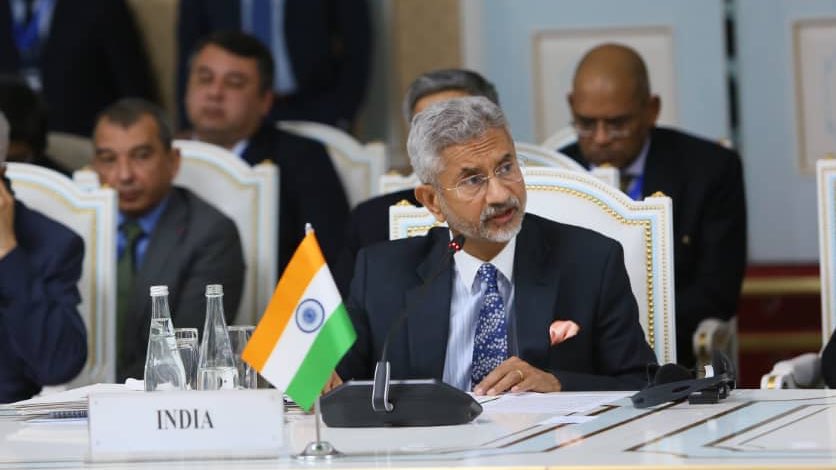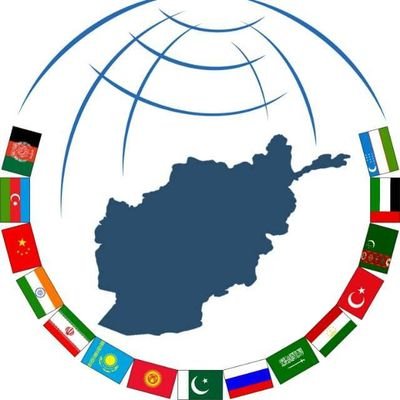
Key Points:
- For a durable peace in Afghanistan, what we need is a genuine ‘double peace’, that is, peace within Afghanistan and peace around Afghanistan. It requires harmonizing the interests of all, both within and around that country.
- If the peace process is to be successful, then it is necessary to ensure that the negotiating parties continue to engage in good faith, with a serious commitment towards reaching a political solution.
- Today, we are striving for a more inclusive Afghanistan that can overcome decades of conflict. But that will happen only if we stay true to principles that Heart of Asia has long embodied. Collective success may not be easy but the alternative is only collective failure.
Speaking at the 9th ‘Heart of Asia’ Ministerial Conference in Dushanbe, India’s EAM Dr S Jaishankar said that what happens in Afghanistan should not be taken lightly as it will affect the larger region. A stable, sovereign and peaceful Afghanistan is truly the basis for peace and progress in our region, he said. He stressed on the need to collectively ensure that Afghanistan is free of terrorism, violent extremism and drug and criminal syndicates.
Highlighting the concerning situation in Afghanistan, Dr Jaishankar informed that last few months have also witnessed an escalation in targeted killings of civil society. “2020 sadly marked a 45 percent increase in civilian casualties in Afghanistan over 2019. 2021 does not look very much better. The continued involvement of foreign fighters in Afghanistan is particularly disturbing”, he said.
He urged that ‘Heart of Asia’ members and supporting countries to therefore make it a priority to press for an immediate reduction in violence leading to a permanent and comprehensive ceasefire. For a durable peace in Afghanistan, what we need is a genuine ‘double peace’, that is, peace within Afghanistan and peace around Afghanistan. It requires harmonizing the interests of all, both within and around that country, he said.
On the efforts by India to ensure peace in Afghanistan, he siad that India has been supportive of all the efforts being made to accelerate the dialogue between the Afghan government and the Taliban, including intra-Afghan negotiations. “We attended the inaugural virtual session of the Doha talks. If the peace process is to be successful, then it is necessary to ensure that the negotiating parties continue to engage in good faith, with a serious commitment towards reaching a political solution”, he said.

India welcomes any move towards a genuine political settlement and a comprehensive and permanent ceasefire in Afghanistan, he said. “We appreciate the international recognition of foundational principles that will determine their contours. We support a regional process to be convened under the aegis of the United Nations. UN stewardship would help to take into account all relevant UN resolutions and improve the odds for a lasting outcome”, he said in his address.
Dr Jaishankar stressed that Afghanistan’s sovereignty in domestic and foreign policy and protection of the rights of women, children and minorities and for all Afghan citizens to live freely and without fear is paramount and these must be protected and built upon as Afghanistan moves forward, he said.
Speaking on India’s developmental initiatives in Afghanistan, he informed the conference that India’s development partnership of USD 3 billion includes more than 550 Community Development Projects covering all 34 provinces aimed at making Afghanistan a self-sustaining nation. He said that India is working towards providing more drinking water to Kabul and improving Afghanistan’s connectivity with the outside world.
Projects like the Chahhabar Port in Iran and the dedicated Air Freight Corridor between the cities of India and Afghanistan are part of India’s efforts, he said.
Urging the members to stay true to principles of Heart of Asia to overcome decades of conflict in Afghanistan, Dr Jaishankar said that the members must deliberate and decide the future course of actions with full awareness and great responsibility.
